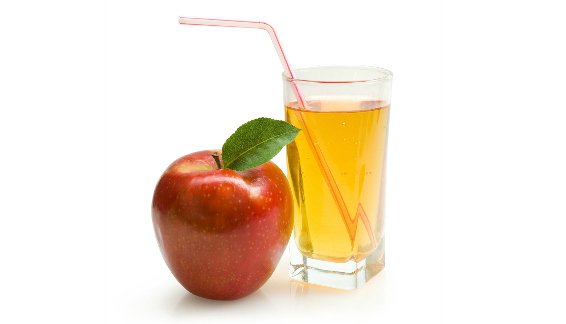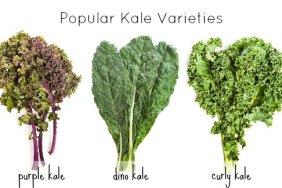Image: Shutterstock
Does your baby need juice in the diet? Does baby juice contain “Magic”? Can you make your own juice for baby? Read the facts about juice and offering juice to babies.
When Can Babies Have Fruit Juice? Is Fruit Juice Ever Good for Babies?
The AAP recommends using fruit juice sparingly for infants (Misuse of Fruit Juice) “It is prudent to give juice only to infants who can drink from a cup (approximately 6 months or older). One of the main issues with offering babies fruit juice is that the juice may displace the amount of breast milk and/or formula a baby drinks; and it may also hinder the amount of solids a baby eats.
Dental caries (problems with baby teeth and growing permenant teeth) have been associated with juice consumption. You see, teeth begin to erupt at approximately 6 months of age and prolonged exposure of the teeth to the sugars in juice is a major contributing factor to dental caries.
If you are considering offering your baby juice, it’s important to note that the AAP and the American Academy of Pedodontics recommendations state that “juice should be offered to infants in a cup, not a bottle, and that infants not be put to bed with a bottle in their mouth. Drinking too much fruit juice can lead to dental problems, malnourishment and even obesity.”
“Most issues relevant to juice intake for infants are also are relevant for toddlers and young children. Fruit juice and fruit drinks are easily over consumed by toddlers and young children because they taste good. In addition, they are conveniently packaged or can be placed in a bottle and carried around during the day. Because juice is viewed as nutritious, limits on consumption are not usually set by parents. Like soda, it can contribute to energy imbalance. High intakes of juice can contribute to diarrhea, over nutrition or under nutrition, and development of dental caries. ” AAP
Can I make homemade juice for my baby?
Making homemade juice is not recommended for infants as you are unable to pasteurize the juice and thus it’s possible that some bacteria or other unsavory items may get into the juice. For adults and older kids, this isn’t as much of an issue. Pasteurization of fruit juices helps to eliminate bacterial concentrations that may cause food poisoning. This is why it is recommended to NEVER give your infant (And even your toddler) apple cider that has not been pasteurized.
Feeding infants (of a certain age) raw fruits should pose no danger if you totally cleanse the fruit, peel the fruit and NOT store any remaining portions. Possible bacterial contamination in fresh fruits is just one of the reasons that many pediatricians recommend cooking fruits until a baby is about 8 months old.
This article is applicable to Toddlers – remember, infants are much more fragile in the digestive system.
“In the past few years there have been outbreaks of bacterial food poisoning from non-pasteurized, fresh pressed juices. These outbreaks were traced to juices made at companies where the equipment and or ingredients were contaminated.
Improper sanitary practices allows the contamination to occur. Pasteurizing is a high temperature treatment that compensates for lack of sanitary practices by killing the pathogen. For those companies that are scrupulously clean, pasteurization is an insurance measure.
I don’t see any problem with your juice making so long as you practice safe food handling techniques to make sure that your daughter’s juice is safe for her to drink. First of all, be sure your equipment is always clean and sanitary. You don’t need to boil it, but putting the different parts that come apart into the dishwasher is a safe way to keep them clean.
Secondly, make sure the ingredients you are using have been thoroughly washed. For those fruits and veggies where you can remove the skin first, you should, as most contamination is on the surface. For juices that contain berries, grapes and leafy greens, be sure they have been double or triple rinsed. Finally, buy your ingredients from a reputable place, where you are confident that foods have been stored in a sanitary manner. Once you have those foods at home, store them appropriately and use them quickly, before time has allowed any bacteria to multiply. The same practices apply to serving any fresh fruit or vegetable to your daughter, juiced or not”. Courtesy of IVillage (now deprecated)
What About Using the “Juice” from Fruits That Have Been Steamed/Boiled for Fruit Purées?
Using the “juice” that has seeped into your steaming water from the fruit you have been cooking is safe. Using this “juice” is NOT the same as tossing some fresh raw apples in a Juice machine, juicing them up and then serving them. Remember, the juice that has seeped into the steaming or boiling water has been boiling.
Uses for “juice” from steaming/boiling fruits when making baby food:
- Freeze in ice cube trays
- Mix into other Foods (Pear Juice with Chicken and Rice for example)
- Mix into cereals
- Use instead of plain water to make teething biscuits
- Pop the frozen cube into a baby safe feeder for teething relief.
Important Points About Offering Your Baby Juice
Your baby does not require any supplemental fluids such as water or juice for quite some time. Once your baby has turned 6-8 months old, with your pediatrician’s consult, you may then begin to offer very small amounts of water. If you think your baby is “thirsty” and would like a drink, try water.
If you decide to offer fruit juice as a “drink” try waiting until baby is at least 8 months old. **Offering juice as a constipation remedy is acceptable as young as 4 months old with the consult of your pediatrician** Giving your baby water as a first “beverage” instead of juice will be healthier in the long run. Always dilute any juice that is offered to babies and toddlers. We recommend diluting 75% water to 25% juice. Keep diluting for as long as possible. Juice should never ever be offered in a baby bottle. Juice in a bottle is a major cause of dental problems. Also, never allow your baby or toddler to drink from a sippy cup of juice throughout the day.
Won’t fruit juices give my baby Vitamin C?
The Vitamin C in fresh fruits has greater bioavailability than the Vitamin C that is added to fortified juices. Give your baby fresh fruits to help meet Vitamin C requirements; juices should never be considered an appropriate source of or a supplement for, fresh Vitamin C.
![]() Remember, always consult with your pediatrician regarding introducing solid foods to your baby and specifically discuss any foods that may pose allergy risks for your baby.
Remember, always consult with your pediatrician regarding introducing solid foods to your baby and specifically discuss any foods that may pose allergy risks for your baby.
![]() This site complies with the HONcode standard for trustworthy health information:
This site complies with the HONcode standard for trustworthy health information:
verify here.


